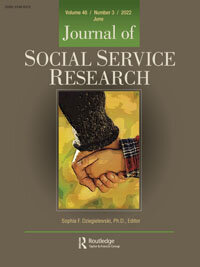Research pertaining to effective foster care reunification strategies is well established. However, a gap exists in the literature surrounding social services for rural families post-reunification due to a lack of service provision for families following reunification. Reunified families often need additional support to prevent future reentry into foster care. Caseworkers work closely with families, offering a unique perspective as to what social services are most effective at preventing reentry into foster care.
Due to recruitment constraints in during the COVID-19 pandemic, a pilot study with a sample of four (N = 4) Department of Family and Children’s Services [DFCS] caseworkers was conducted. Utilizing a qualitative framework, this pilot study investigated a sample of caseworkers’ perceptions as related to social services for improving family unity post-reunification, as well as barriers that exist for families accessing social services in rural southeast Georgia.
Findings indicate that post-reunification services must be targeted and consistent to remain effective at maintaining family unity. Implications for social services providers, families, policymakers, and child welfare advocates are discussed. Future social services research examining the nuanced relationships between the geographic and social locations of families is needed to illuminate social services that support desirable and sustainable outcomes post-reunification.

